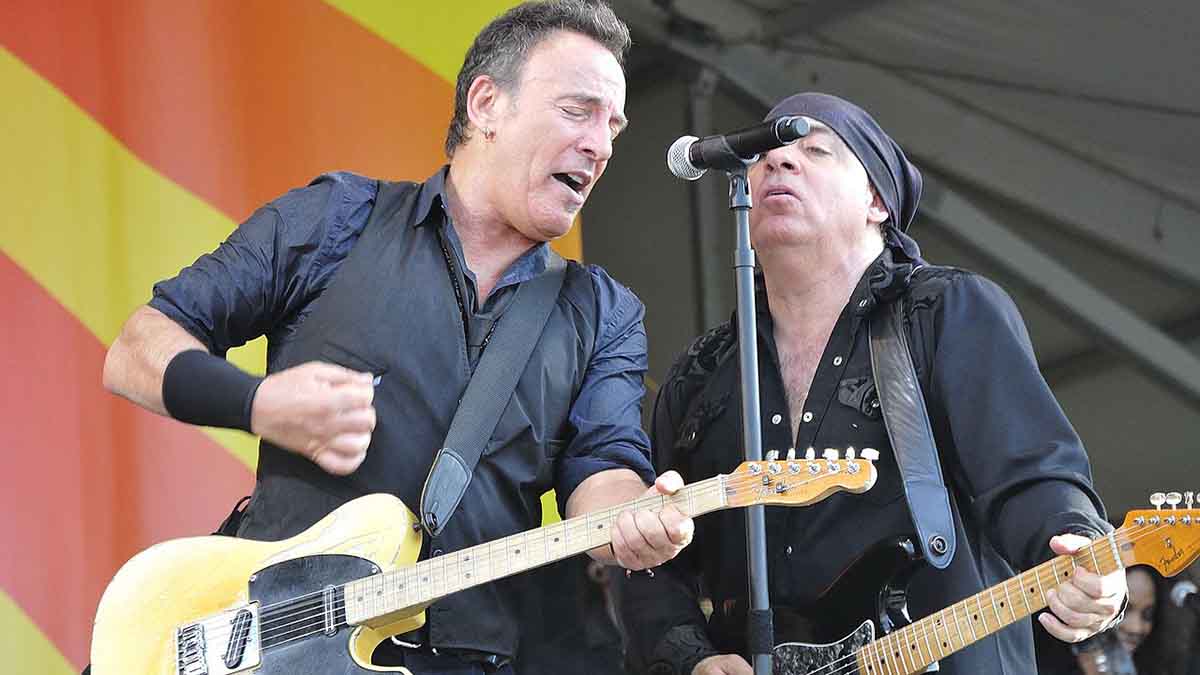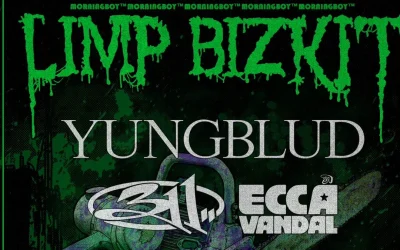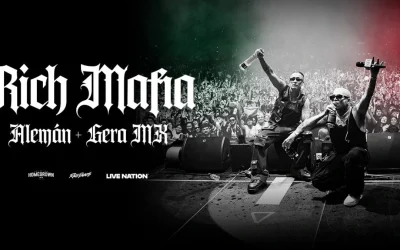Bruce Springsteen and his manager Jon Landau are back on the defensive against Ticketmaster Entertainment. Landau has posted a lengthy statement on the Boss’s official Web site defending the practice of ticket holdbacks and responding, though not by name, to recent comments made by Ticketmaster chairman Barry Diller.
Earlier this year, the performer lambasted Ticketmaster for allegedly redirecting fans to resale subsidiary TicketsNow during February 6 onsales for concerts in the Boss’s native New Jersey before tickets even sold out on the primary market. Ticketmaster CEO Irving Azoff quickly responded to the accusation with an apology, and tempers appeared to be neutralized on both sides.
But now the war of words has flared up again, just over a week after the Newark Star-Ledger revealed that exactly 2,262 tickets were held back for Springsteen’s May 21 concert at the Izod Center in East Rutherford, NJ. Citing documents uncovered through the Open Public Records Act, the publication reported that all but 108 of the 1,126 seats in the first four sections were held back from the public.
It’s considered customary for artists to hold back some portion of an event’s tickets for friends, family, record label executives, media, local giveaways and more. However, the sheer size of the holdback and stage-side location of the reserved tickets was called into question in the article, which suggested the holdbacks caused ticket prices to spike unnecessarily on the secondary market.
Shortly thereafter, Diller referenced the article with the New York Post, calling Springsteen “one of our most vocal critics on our ticketing policies,” before continuing, “and while he’s more than entitled to his opinion, it seems minimally fair-minded to point out that in the concert that created the battle, where Ticketmaster apologized for making a technical mistake, it seems that Mr. Springsteen held back from his fans all but 108 of the 1,126 tickets closest to the stage.”
Diller’s statement hit the mark according to TicketNetwork CEO Donald Vaccaro, who stated, “Mr. Diller is making a valid comment. If fans were misled by the amount of tickets withheld to Springsteen’s Izod show, which seems to be the case, then Springsteen himself appears to be the one responsible for much of the consumers’ ire.”
Vaccaro continued, “A cornerstone of TicketNetwork’s legislative agenda is for concert artists to give disclosure on how many tickets are being held back and where those tickets are located. There is no ethical reason not to.”
However, Diller’s words seemed to be the final straw for Landau, whose nearly 1,200-word statement takes a clear line against Ticketmaster and any statements suggesting Springsteen’s standard holdbacks had any hand in the recent ticketing fiascos and fan headaches.
Read Landau’s full statement below:
AN UPDATE ON TICKETING ISSUES FROM JON LANDAU
Somehow, a new flurry of interest has been created around Thrill Hill’s ticket holds for the recent Izod Center shows. These are the same shows that became such a subject of controversy when they went on sale on February 6th. The new theory is that Bruce’s holds were the problem on February 6th, and not Ticketmaster’s already acknowledged failures on that day. But the truth is that Bruce’s holds had nothing to do at all with the breakdown of Ticketmaster’s system.
These are the undisputed facts about February 6th. On that morning, when our fans went to buy their Bruce and Band tickets for the face value of $95, they were in many cases immediately linked to Ticketmaster’s wholly owned ticket reselling company TicketsNow, where prices were many times higher than $95. We call this “bait and switch.” As a result, an undetermined but large amount of money flowed into TicketsNow (and eventually Ticketmaster) even though there were still tickets at normal prices yet to be made available on Ticketmaster. We perceived this to have been a major abuse of our fans, complained about it mightily, and added that because of behavior like this, the pending merger of the number one ticketing company and number one management company (both owned by Ticketmaster) with the number one venue owner and operator (Live Nation) might not be such a hot idea.
How do we know that all this is true?
1. On February 6th, when the ticket fiasco occurred, Ticketmaster’s CEO wrote to Bruce, myself, and our fans to generously apologize, which apology we promptly and graciously posted on our site. The letter stated that the problem was the product of an inexplicable “glitch.”
2. The volume of complaints received by New Jersey Attorney General Anne Milgram exceeded anything ever experienced before and she ultimately secured a consent degree from Ticketmaster, in which they promised that some of their practices (“glitches”) with regard to its sister company TicketsNow will never be repeated.
3. The CEO of Ticketmaster openly testified as to their responsibility for these “glitches” in front of Committees of Congress.
Based on all of the above, we can safely conclude that on February 6th, Ticketmaster transferred legitimate requests for tickets at face value over to their TicketsNow site, where they could charge people hundreds and hundreds more dollars for the same ticket. The amount of additional profit generated by scalper type prices through this now famous “glitch” remains unknown. Whether this was merely an extremely profitable “glitch” for Ticketmaster/TicketsNow or something else, we have no way of knowing.
Last Sunday, June 14, the Newark Star Ledger ran an article entitled “Springsteen withheld best tickets from the public at NJ concert, records show.” This is the same article that the Star Ledger runs whenever we do a few indoor shows in New Jersey. It suggested that we were in someway responsible for the Ticketmaster/TicketsNow problem. On Thursday, June 18, Hits Magazine ran a summary of this article, On Friday, June 19, Ticketmaster’s Chairman attacked Bruce personally in the New York Post, in an article called “Ticket Blitzkrieg.” In this article, Ticketmaster’s Chairman deploys by implication Ticketmaster’s new line: despite their apology, despite the consent decree with Attorney General Milgram, and despite their testimony in Congress, the ticket catastrophe was actually Bruce’s fault.
Of course, the only thing wrong with the Chairman’s spin is that it’s flatly untrue. He is merely using the time honored tradition of blowing smoke to distract attention away from Ticketmaster’s already acknowledged responsibility for their “glitches” on February 6th, the on-sale date of the two Izod Center shows.
Now lets talk a little about Thrill Hill’s ticket practices. Perhaps the first thing to be said is that when we play New Jersey, our fans know that we are usually going to do more than two indoor shows in order to ensure, among other things, that during the course of a tour, Springsteen tickets will be plentiful so as many fans as possible will have a chance to get great seats (hence the five upcoming shows at Giants Stadium.) As our fans also know, we have kept all of our tickets under $100 and do all that we can to ensure that as many as possible are sold at face value.
Yes, we do hold significant numbers of tickets when we play New Jersey, New York and Los Angeles, as does every arena headliner. These holds are used by Bruce, his band members, and longtime members of his extended organization, their families and close relations; by the record label for their staff, for reviewers, and for radio stations; by charities who are provided with tickets for fund raising purposes, such as special auctions; for service people who help us on a year-round basis; and for other similar purposes. Unlike some Ticketmaster managed artists, no tickets are held for high dollar resale on TicketsNow, or through any other means.
Where are the Bruce holds? The 2,000 to 3,500 tickets closest to the stage are on the floor and more than 95% of them go to the public, making the basic premise of the Star Ledger headline inaccurate. Secondly, with regard to seats held in the best sections on either side, we always blend guest seats with fan seats so that there are never any sections consisting entirely of guest seats.
In addition, it is well known that we sometimes release a significant number of excellent tickets on the day of the show at the box office, which can only be bought with direct entrance to the venue. It’s known as the “drop.” Many think that is done on purpose to help combat the scalpers who prey on fans at the last minute. That is a good thought.
(Also, in connection with the Izod Center shows in particular, we released some of our holds to Attorney General Milgram to go into the lottery she created to help deal with people who were penalized by the Ticketmaster/TicketsNow “glitch” on February 6th.)
Those are our ticket practices, as they have evolved over more than 30 years of experience. Does anyone seriously imagine that any element of these practices caused Ticketmaster to redirect ticket requests to TicketsNow for the Izod Center shows? What would our incentive have been? It’s not we who earned vastly larger sums when fans paid way over the face value of the tickets. It was Ticketmaster/TicketsNow.
Final thoughts: We have no interest in having an ongoing conflict with Ticketmaster/TicketsNow or anyone else. That has not been part of our history. And it is generally not our purpose to spend time on this site on matters of this kind. But we do get upset when we see fans being taken advantage of, as they were on February 6th. So, when that stuff stops happening (and the Ticketmaster/TicketsNow problems surrounding our recent show in Washington D.C. shows that these issues are far from resolved) we will stop complaining. And when the facts cease to be misrepresented, we will stop explaining.



